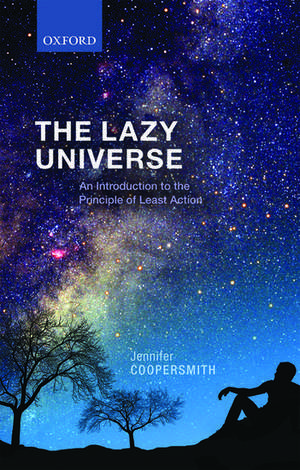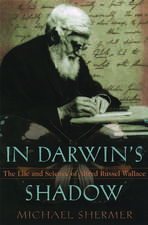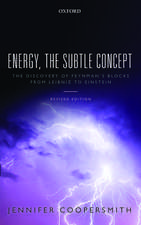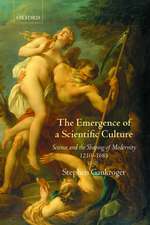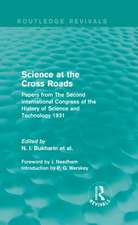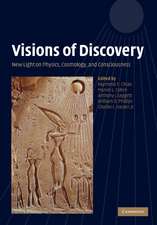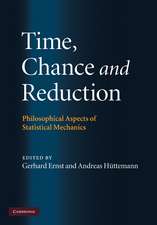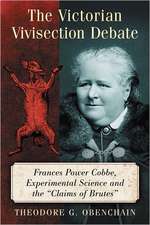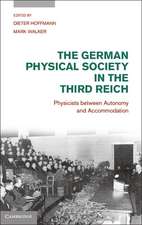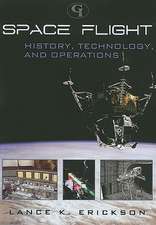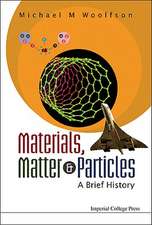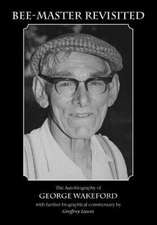The Lazy Universe: An Introduction to the Principle of Least Action
Autor Jennifer Coopersmithen Limba Engleză Hardback – 11 mai 2017
Preț: 291.38 lei
Preț vechi: 315.89 lei
-8% Nou
Puncte Express: 437
Preț estimativ în valută:
55.76€ • 58.00$ • 46.04£
55.76€ • 58.00$ • 46.04£
Carte disponibilă
Livrare economică 13-19 martie
Livrare express 07-13 martie pentru 59.80 lei
Preluare comenzi: 021 569.72.76
Specificații
ISBN-13: 9780198743040
ISBN-10: 0198743041
Pagini: 288
Ilustrații: 52
Dimensiuni: 149 x 222 x 23 mm
Greutate: 0.52 kg
Editura: OUP OXFORD
Colecția OUP Oxford
Locul publicării:Oxford, United Kingdom
ISBN-10: 0198743041
Pagini: 288
Ilustrații: 52
Dimensiuni: 149 x 222 x 23 mm
Greutate: 0.52 kg
Editura: OUP OXFORD
Colecția OUP Oxford
Locul publicării:Oxford, United Kingdom
Recenzii
Jennifer Coopersmith has written a most welcome book, the first historically and philosophically motivated full study since two classics written nearly a half-century ago... [She] has attempted and succeeded admirably I believe in her aim to write a modern book on the history and philosophy of the action principles, as well as to give the technical details.
Any careful reader of this book will seek out the monograph without fail and benefit from its perusal... I have no hesitations in recommending this book to any physical scientist or engineer who wants to understand variational principles better.
Recommended.
[C]ontagious enthusiasm and a sense of humour unusual in this kind of literature ... The first part is excellent reading for anybody with an interest in the history and philosophy of science. I also recommend the book to students in physics and mathematics who are willing to dig deeper into this subject after taking classes in analytical mechanics, and I believe that it is accessible to any student in STEM disciplines. Practitioners in physics from any sub-discipline will enjoy a refresh and a different point of view that puts their tools of the trade in a broader context.
Inspired by the monumental work of Lanczos, Jennifer Coopersmith has constructed a beautiful exposition of the philosophical basis underlying classical mechanics. It has enough technical meat to be interesting to an expert, while remaining accessible to a novice.
This is a well written and comprehensible presentation of some of the most fascinating and fundamental principles which theoretical physics has uncovered. The author has done a great job in making accessible 'as if-laws' to a broader audience.
This book has a general audience: every practicing physicist -- and a specific audience: every physics textbook writer. Envision and teach physics powerfully and directly with energy, action, and the Principle of Least Action.
Any careful reader of this book will seek out the monograph without fail and benefit from its perusal... I have no hesitations in recommending this book to any physical scientist or engineer who wants to understand variational principles better.
Recommended.
[C]ontagious enthusiasm and a sense of humour unusual in this kind of literature ... The first part is excellent reading for anybody with an interest in the history and philosophy of science. I also recommend the book to students in physics and mathematics who are willing to dig deeper into this subject after taking classes in analytical mechanics, and I believe that it is accessible to any student in STEM disciplines. Practitioners in physics from any sub-discipline will enjoy a refresh and a different point of view that puts their tools of the trade in a broader context.
Inspired by the monumental work of Lanczos, Jennifer Coopersmith has constructed a beautiful exposition of the philosophical basis underlying classical mechanics. It has enough technical meat to be interesting to an expert, while remaining accessible to a novice.
This is a well written and comprehensible presentation of some of the most fascinating and fundamental principles which theoretical physics has uncovered. The author has done a great job in making accessible 'as if-laws' to a broader audience.
This book has a general audience: every practicing physicist -- and a specific audience: every physics textbook writer. Envision and teach physics powerfully and directly with energy, action, and the Principle of Least Action.
Notă biografică
Jennifer Coopersmith took her PhD in nuclear physics from the University of London, and was later a research fellow at TRIUMF, University of British Columbia. She was for many years an associate lecturer for the Open University (London and Oxford), and was then a tutor on astrophysics courses at Swinburne University of Technology in Melbourne while based at La Trobe University in Bendigo, Victoria. She now lives in France.
